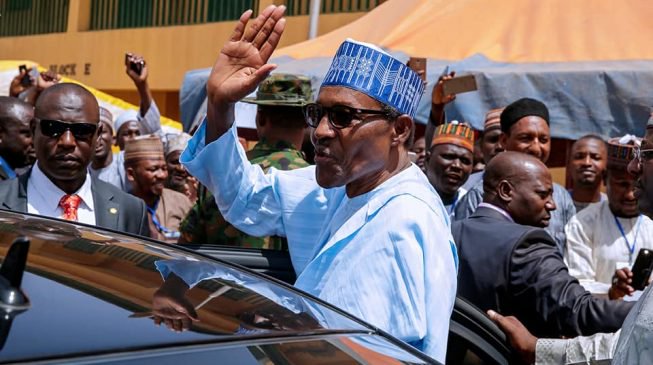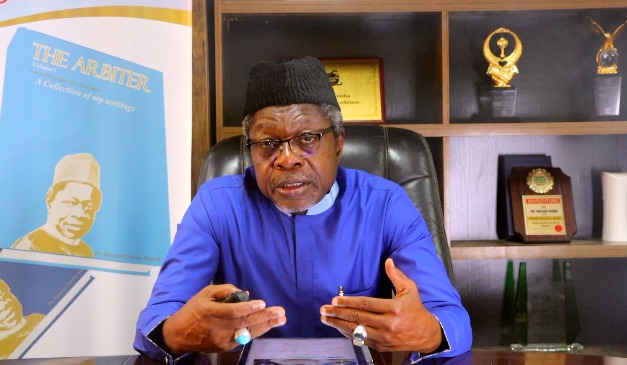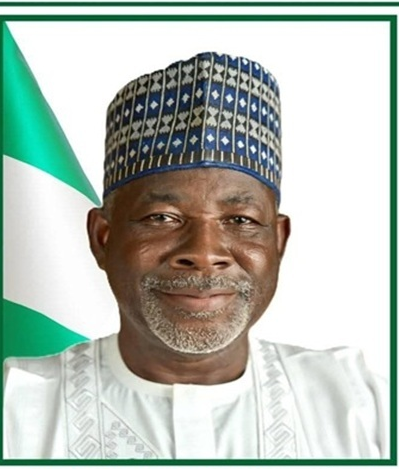Nigerians were shocked to wake up to another sudden increase in the price of PMS, just weeks after a significant hike. The product is now selling for N617 per liter, leaving citizens facing a harsh reality, with many unable to afford fuel for their vehicles.
The official response attributes this to global market forces, but the truth is, Nigeria is not ready for the full force of global economic dynamics. Comparing our situation to that of advanced nations is overly simplistic, as we lack the infrastructure and economic development to compete on the same level.
The fact is that, we are not ripe for a global run of play. We do not operate on the same level with the advanced world. You don’t force yourself into a class you do not fit into. Africa should not be dragged into the dancehall of other developed continents who are dancing to the beat of blues at a time we are still humming to the uncoordinated rhythm of ‘ogiriya’ beat.
Let no one pad you with the subliminal farce of a freed trade, we can’t be in a free market that is littered with nations with comparative higher advantage. What sense to operate on the same market of interest with the US whose quest for economic liberation birthed over 500 years ago? The proponents of this global free trade should excuse us, we are not ready to be free in a race that has Usain Bolt, Tyson Gay, Carl Lewis, and the rest.
Countries like the USA, Canada, UK, Germany, Russia, China, and others have had decades, if not centuries, to adjust to market forces and have built critical social infrastructure and economic stimuli. In contrast, Africa, including Nigeria, still faces substantial infrastructural deficits.
While global players have advanced to supersonic trains and renewable energy options, we are still struggling with basic transportation and electricity shortages. . At a time these nations are flying on supersonic trains, we are still not riding in locomotive trains, electricity is a huge deficit for us at a time the nations that want us to sit in the same table of interest with them are down with water powered energy to a renewable energy option. While they are tenants of outer space, Africa is still on planet Earth buried in rudderless sight.
The call for global free trade and economic liberalism should not be forced upon Africa. Instead, the continent needs economic self-determination to address its unique challenges and opportunities. Globalization, driven by economic liberalism, tends to widen the gap between the rich and poor, leaving the world more impoverished. It prioritizes the interests of foreign markets and investments, exploiting cheap labor and maximizing profit, rather than focusing on human upliftment and national development.
President Bola Ahmed Tinubu, Nigeria should be cautioned against the intrusive nature of free market policies in Nigeria. Our society is not equipped to handle the negative consequences of globalization, which have been witnessed in the increasing poverty levels and a growing divide between the haves and have-nots.
The promises of poverty reduction through globalization have not materialized, and Africa continues to suffer from rising poverty rates. Let no one pad us with the song of free trade coated in market force- globalization is a hurried trip to perdition, it’s a vehicle for widening gap between the have and the have not, it’s an unequal template for further subjugation that leaves the world more impoverished.
We do not have the cushioning buffers to run in this race, the people are groaning, small businesses are folding up, families are in terrible situation – a widening gulf of disparity chokes us in the throat. In a fiercely contested world, what Africa requires is economic self-determination rather than economic liberalism. The goal of national development extends beyond mere sustenance; it is about empowering voices and fostering true autonomy.
Globalization and economic liberalization can also influence political governance, giving undue power to lobbyists and potentially leading to corrupt and unrepresentative regimes. The triumph of capital over the state can turn nations into money-driven machines, further widening the gap between the rich and poor and perpetuating societal class struggles.
Instead of trying to compete directly with the global economy, Nigeria should focus on harnessing its own peculiarities and potentials. By prioritizing domestic development and self-determination, the country can work towards a brighter and more prosperous future, free from external control and guided by its own aspirations. True progress lies in pursuing greatness, self-realization, and liberty, rather than blindly adhering to external forces. Only by embracing our values and principles can Nigeria liberate itself from poverty and underdevelopment.
Living in a world shaped by external forces doesn’t lead to genuine freedom. True accomplishment arises from a people with a deep aspiration for greatness, honor, self-realization, and liberty. Instead of prioritizing foreign direct investment, investors, grants, and aid, Nigeria possesses the inherent potential to liberate itself and its people from poverty and underdevelopment. What we truly need is not to measure our strength with the world but domesticate our peculiarities and potentials: By embracing these values and principles, Nigeria can chart its course towards a brighter and more prosperous future, free from external control and guided by its own collective ambitions. Remember, only slaves labor without inheritance.
Gaskiyally musing
Abdullahi O Haruna Haruspice





